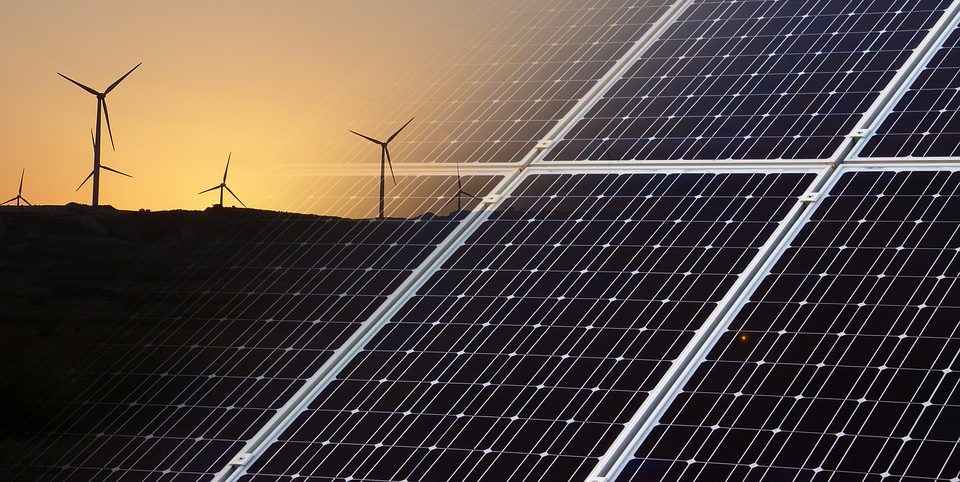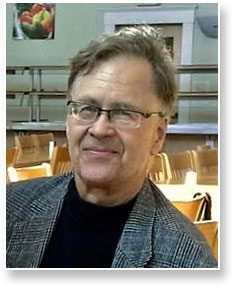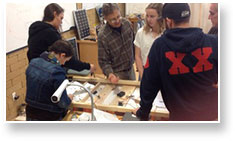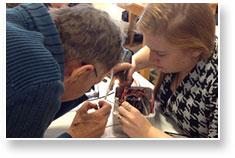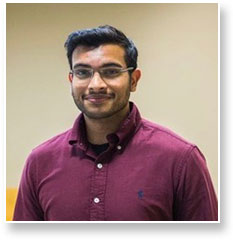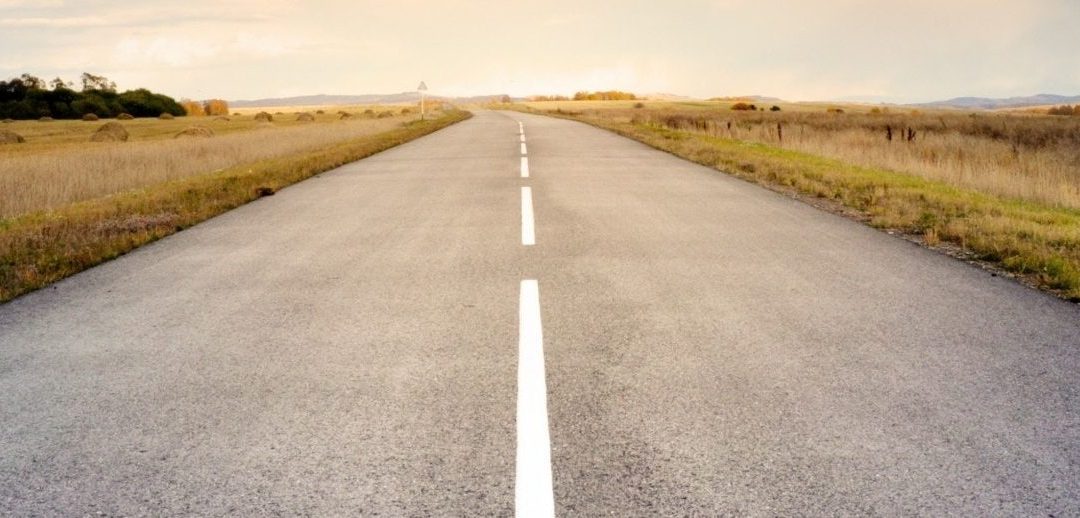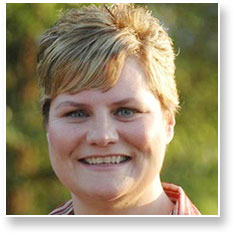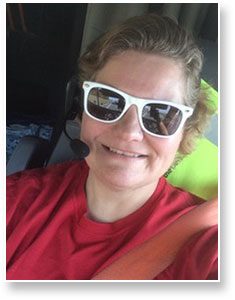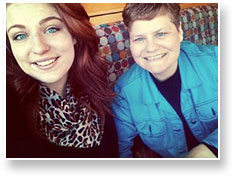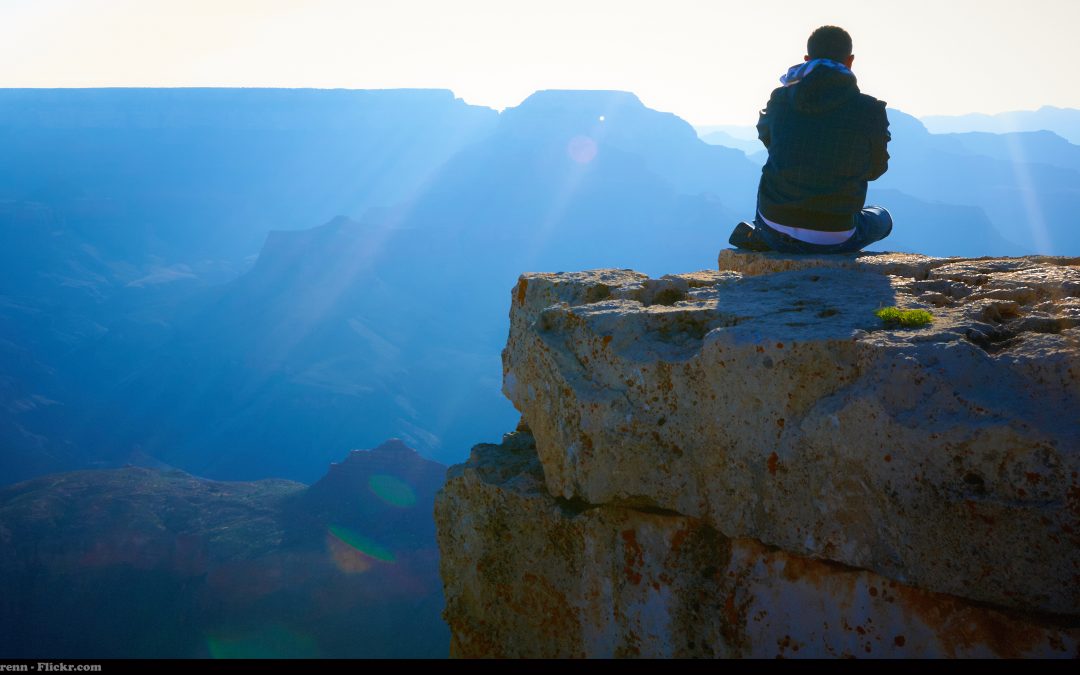
2nd ChangeMakers Event Focuses on the Effect of College on the Brain
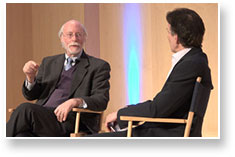
Neuropsychologist William R. Sixtrud being interviewed by event organizer Michael Sternfeld
(photo by Werner Elmker)
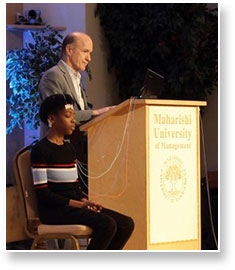
Professor Fred Travis demonstrating brain-wave patterns with student Chevonne Height
(photo by Werner Elmker)
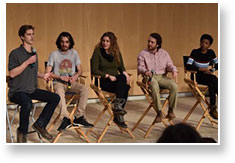
The student panel: Kirby Shields, Chris Baluja, Emily Mauntel, Kent Kachejian, and Chevonne Height
(photo by Red Pearson)
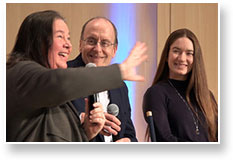
Speakers Vicki Alexander Herriot, Dean of Faculty; Craig Pearson, VP of Academic Affairs; and Leslie Doyle, Director of Personal Support Services at MUM
(photo by Werner Elmker)
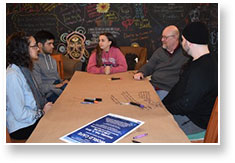
Students participating in the World Cafe roundtable discussion
(photo by Red Pearson)
On February 8, MUM held its second ChangeMakers event, titled “Is College Bad for Your Brain?” The conference explored the national epidemic of stress that can be overwhelming for college students in their pursuit of higher education.
Mental health challenges, substance abuse, and poor lifestyle choices undermine student learning outcomes and a successful college experience, said organizer Michael Sternfeld. Nationwide, three out of four students report feeling stressed; 39 percent of college freshmen report symptoms of anxiety or depression; 40 percent of college students binge drink; and there has been a 30 percent rise in mental health support requests.
The conference’s goal was to showcase MUM as a university that is reversing this trend by putting stress-reducing meditation at the core of the curriculum rather than as a peripheral add-on as done at other universities. Speakers included neuroscientists, psychologists, educators, and students.
A panel of five students discussed their experience dealing with stress and the transformation they have undergone at MUM. “MUM has provided the tools and allowed me to work with the stress, instead of against it,” said student Kirby Shields. “TM and Consciousness-Based education focus on who you are, and more so on who you want to be,” said Chris Baluja. “That’s what differentiates MUM from every other university.”
In addition, former Student Government President Chevonne Height participated in a live EEG demonstration led by Professor Fred Travis, showing the coherence creating benefit of the TM technique.
Chevonne said that since the event coincided with the orientation week for new students, many of the incoming students participated and learned about how MUM can help them grow and measure their growth by showing the improvements in their brain.
Chevonne also spearheaded the Love ThySelf Week challenge which encouraged students to engage in actions of self-care and self-love and share their successes with healthy behaviors.
On Saturday student Dylene Cymraes led a World Cafe event, which explored the question: How do we take full responsibility for creating a more balanced, centered life for ourselves and our greater community? During this dynamic roundtable discussion, students had a chance to interact on a more intimate level with the presenters from the Friday event.
The ChangeMakers event was sponsored by the David Lynch Foundation, the Abramson Family Foundation, and MUM.
Read about the speakers and watch a replay of the broadcast here.

